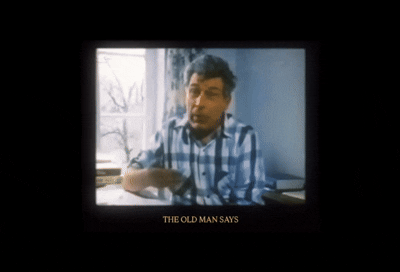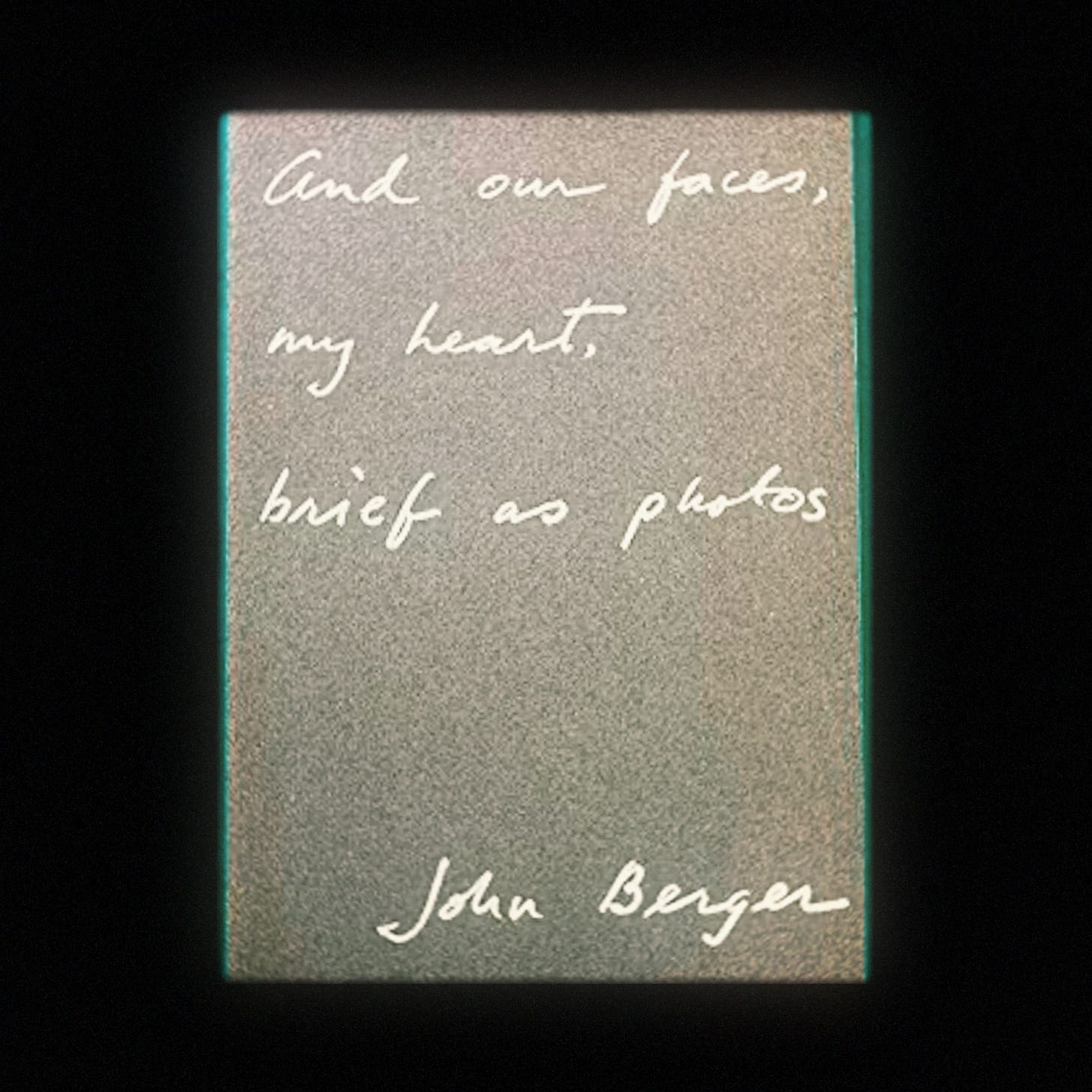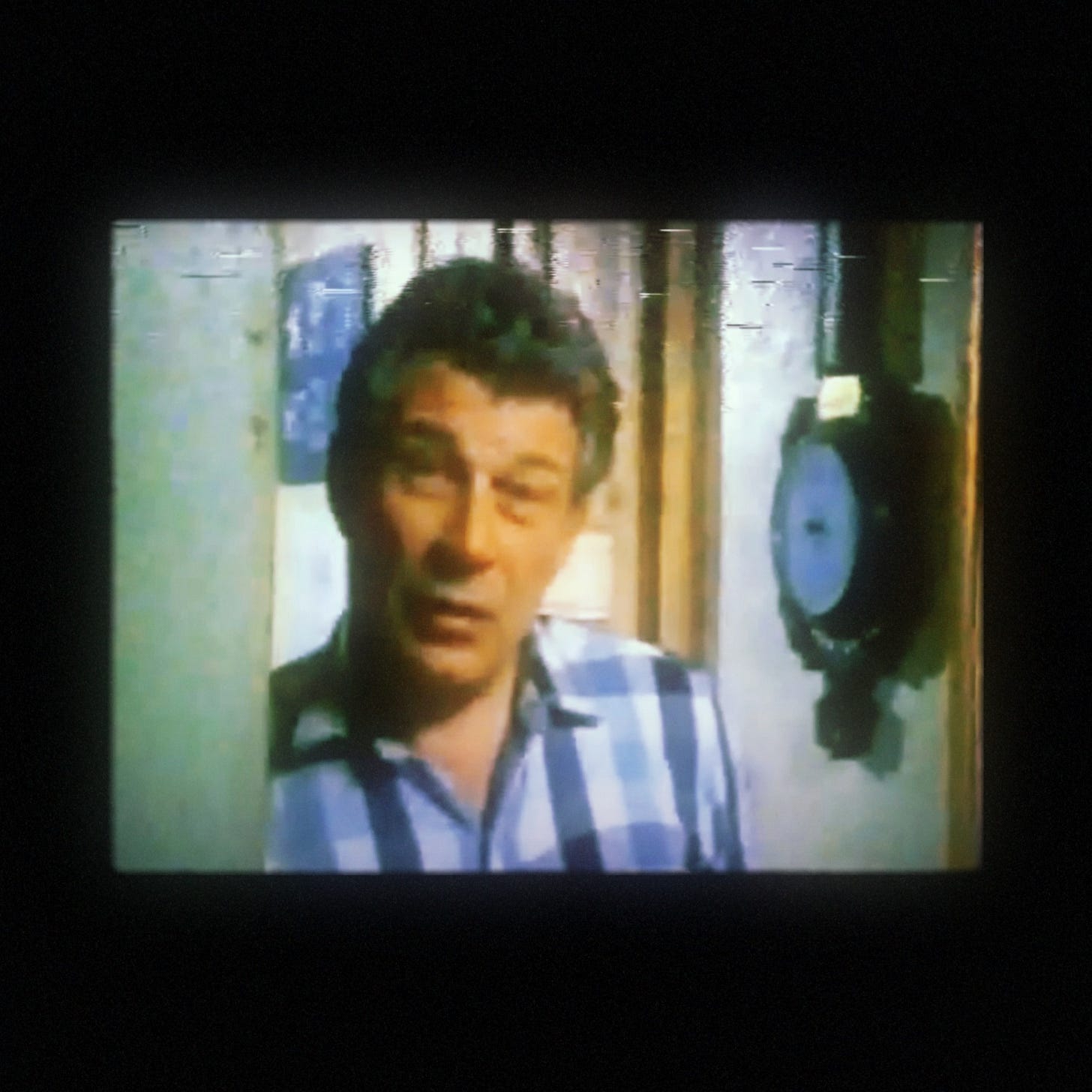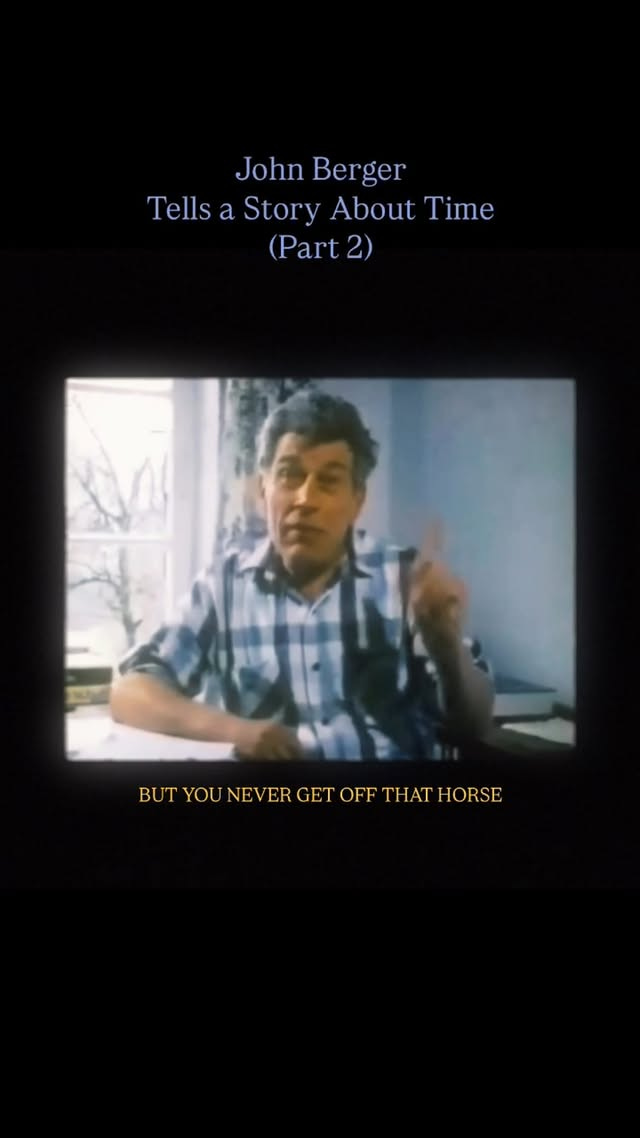Letter 8: John Berger on Time in an Age Obsessed with Longevity
An Ode Against the Longevity Hype with 3 Creative Exercises Inspired by the Storytelling of John Berger
When I open my wallet
to show my papers
pay money
or check the time of a train
I look at your face.
The flower's pollen
is older than the mountains
Aravis is young
as mountains go.
The flower's ovules
will be seeding still
when Aravis then aged
is no more than a hill.
The flower in the heart's
wallet, the force
of what lives us
outliving the mountain.
And our faces, my heart, brief as
photos.— John Berger in And our Faces, My Heart, Brief as Photos, 1984
John Berger Defeats Time With Storytelling
“All storytellers are deeply honest because they cannot invent; they can only tell what has already happened to them or to others.”
—John Berger
John Berger was a storyteller at heart. He believed that storytellers were closer to life and that true storytelling carried with it a feeling of profoundness and freedom, not only of expression but also from the constraints of institutions.
Berger was the most brilliant storyteller and proud to be one. In a show done for Channel 4 in 1984, he shares a beautiful story with us: This story, which you can read and listen to below, originated near Verona centuries ago and is still as relevant and captivating today. It speaks to the inexorability of time, the inevitability of death, and the timeless human desire for immortality.
And yet, we now live in a culture increasingly obsessed with defying that very truth. We chase longevity, idolise youth, and try to dodge death, as if the goal were to outwit time itself. But life is made beautiful precisely because it moves through time. It’s the aging, the limits, the seasons, the goodbyes that make meaning possible.
In this essay, we will return to the story John Berger told as a poetic antidote to the modern longevity hype and explore what tools it offers us, not to escape time but for living within it more deeply.
Read or listen to the story below, Berger recounts it in the most beautiful way.
Earth Poet is a weekly newsletter that unpacks quotes from cultural icons — writers, artists, provocateurs — and reflects on what they mean now, with creative rituals to explore and journal prompts for deep reflection — all woven into weekly essays on cultural and social themes.
Free readers receive biweekly essays and digests. Paid subscribers unlock weekly essays, the Monthly Earth Poet Library Book & Film Club, the Dead Poet Advice column — where voices from the past answer questions from the present — and so much more.
Subscribe for free to begin with or become a paid subscriber to unlock it all.
A Story About Time
Let me tell you a story…
A young man once decided that death wasn’t for him. He left home to find the place where nobody ever dies.
First, he met an old man with a beard down to his chest, wheeling rocks off a mountain.
“Stay with me,” the old man said, “and you won’t die until I’ve carted away the entire mountain.” The young man moved on.
Next, he came to a second old man with a beard to his waist, trimming branches at the edge of an endless forest.
“Stay with me,” he said, “and you won’t die until I’ve cut every branch in this forest.”
Still, the young man continued.
Then he met a third old man, with a beard down to his knees, watching a duck drink seawater from an ocean.
“Stay,” he said, “and you won’t die until the duck drinks the whole sea.”
The young man declined again — and finally reached a castle, where an old man with a beard down to his toes opened the door.
“I’m looking for the place where nobody ever dies,” the young man said.
“You’ve found it,” the old man replied.
“Can I come in?”
“Yes,” he said. “I would be very glad of company.”
And time passed…
One day, the young man said to the old man in the castle, “I’d like to go back. Just for a moment — to see my family, or the town where I was born.”
“They’re all dead,” the old man said. “But all right — take my white horse. He’s as fast as the wind. But whatever you do, never get off that horse. If you do, you’ll die.”
The young man rode on.
He passed the dry ocean, where only bones remained.
“How right I was not to stop there,” he thought.
He passed the forest, now grassland.
The mountain, now a plain.
“How right I was,” he repeated.
At last, he reached his hometown — but nothing was familiar. So he turned back.
At nightfall, he saw a cart stuck in the mud, piled with worn-out boots. The carter cried, “Please, get down and help me.”
Out of pity, the young man dismounted. And before his second foot touched the ground, the carter seized his arm:
“Do you know who I am? I am Death. And those boots? I wore them out chasing you. But now I’ve found you. Because no one escapes me.”
Why is it that now, more than ever, we are obsessed with longevity? Is it fear of looking old, of disappearing before we have been fully seen? In John Berger’s story, the young man searches for the place where nobody dies. He refuses time-bound bargains, arrives at the palace beyond death, and in the end, steps down out of pity, only to be met by Death, who has worn out a cart full of shoes chasing him. The story is clear: death is inescapable. Yet, Secretly or openly, we all know that there are meanings, moments, forces which seem to us to outlast time.
Our modern fixation on making the body ageless is a misdirection. What we truly seek isn’t a physical escape from mortality, but a deeper relationship with time itself. And for that, we don’t need serums or supplements—we need stories. Because the real tool for immortality isn’t found in biology, but in creativity. The storyteller, Berger writes, is death’s secretary: the one who preserves what would otherwise vanish. Storytelling, our oldest way of keeping something alive, is the true tool for immortality.
3 Creative Exercises Inspired by the Storytelling of John Berger
While we may not be able to stop time, we can deepen our relationship with it. Through stories, presence and imagination we can live not just through time, but with it.
These three creative exercises support you in reflecting, observing and telling stories that honour the unmeasurable moments of a life.
Cross the Abyss Between What We Feel and What Can Be Explained by Science with a 5 Noun Poem
Experience Time as Space by Returning to Animal Time
Defying the Abstraction of Time by Bending it with Daydreaming








